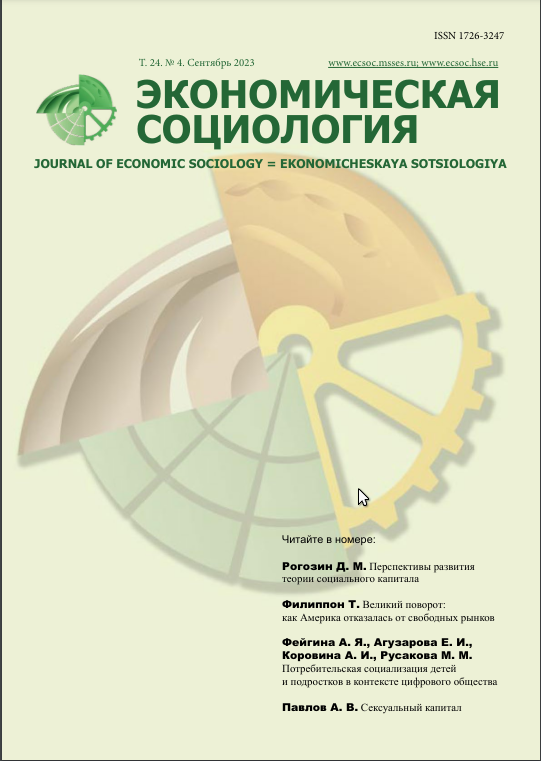How Informal Intermediaries Influence the Inclusion of Cross-Border Migrants in the Shadow Labor Market
Abstract
This article examines non-formal intermediaries providing migrant workers from North Korea and Central Asia with jobs in the construction sector of Siberia. It delves into the interactions between these intermediaries and cross-border migrant workers, Russian authorities, and entrepreneurs. Furthermore, it discusses their role in migration flows and the integration of migrants into the shadow labor market of Siberian cities. Based оп 13 semistructured interviews with non-formal intermediaries and representatives from the construction industry, we have highlighted the social characteristics of these intermediaries, their position within the horizontal networks used for servicing, employing, and exploiting migrant labor. It has been established that non-formal intermediaries support the development of crossborder migration flows of migrants employed in the shadow segment of the labor market. Upon their arrival in Russia, these migrants often take on “3d” jobs (dirty, dangerous and difficult), and their well-being and security depend significantly on the social capital of the intermediary who brought them to the country. These intermediaries exchange the social capital they have acquired over years of staying in Russia, especially their contacts with local officials and security forces, for a portion of the income earned by a labor migrant. In return, they facilitate interaction between migrants and the Russian state and business. The demand for non-formal intermediaries can be easily explained by the fact that many migrants from rural areas of Central Asia have limited knowledge of the Russian language and lack familiarity with the realities of life in large cities. While they are interested in working in Russia, they often lack the information and resources that an intermediary can provide in exchange for a portion of their future income. Another factor is the complexity of Russian migration legislation, which significantly increases the costs associated with integration. Intermediaries have connections within Russian state institutions, enabling them to reduce these costs for migrants, but again, in exchange for a portion of the migrant's earnings. Meanwhile, attracting migrants to the shadow segment of the labor market turns out to be beneficial for local “municipal political regimes” and provides them with various ways to collect fees for specific administrative or law enforcement services. Therefore, the complexity of legislation and the informal employment of migrants benefit all participants in the construction sector. Intermediaries and “municipal regimes” have the opportunity to earn income from this arrangement, while migrants have the chance to reduce the costs of legality, the cost of integration, and the overall level of uncertainty in the host country.













